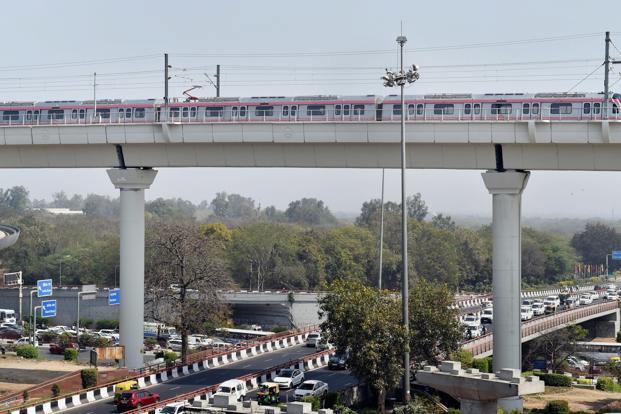Delhi Metro opens its new Pink Lines doors for commuters from today
New Delhi, March 14: Connecting networks of metro rail, Delhi being a metropolitan city has witnessed much technological innovation in terms of advancements. Ensuring reliability and safety in train operations, the Delhi Metro is equipped with the most modern communication and train control system. It has state-of-art air-conditioned coaches.

The Pink Line of Delhi Metro is slated to be formally flagged off today by Delhi Chief Minister Arvind Kejriwal and Union Minister for Housing and Urban Affairs (Independent Charge) Hardeep Singh Puri. It will prove a big boon for commuters, especially students, who till now have to travel either by road from the North Campus or take the Airport Line metro till Dhaula Kuan and commute again on road.
The circular Pink Line will eventually turn the Delhi Metro network into a web by connecting many of the existing radial corridors at 10 different interchange points, including the Airport Express line at Dhaula Kuan station.
Delhi Metro Rail Corporation spokesperson Anuj Dayal said, “By June of this year, a majority of the ongoing Phase-III expansion would be opened to the public.”
The new section of the Pink Line will especially benefit college students, as the Delhi University’s South and North campuses would finally be connected directly via public transport. The Durgabai Deshmukh station near South Campus is also expected to become a major transport hub as it will be connected to the existing Airport Express line station at Dhaula Kuan.
For the first time, travelators are being installed on foot over bridges in the vicinity of interchange hubs, with the travelator at Durgabai Deshmukh metro station stretching over nearly a kilometre to connect it with Dhaula Kuan station on the Airport Express line. Similar to the recently inaugurated Magenta Line, the Pink Line will also have driverless technology. It will become the second Delhi Metro corridor to be operated using the Communication Based Train Control (CBTC) signalling technology which facilitates movement of trains with a frequency of 90 to 100 seconds.
Delhi currently has the 12th largest metro network in the world. Five of the top 10 are in China. By the end of 2018, Delhi is expected to add close to 100 km of metro lines, making its metro network the 8th largest in the world.